Radio show offers a voice to the native community
One woman discovered the power of community radio in 2009, when the indigenous people of Vermont were still not recognized at a state level.
Some tribes of the Abenaki nation, the people native to the region now known as Vermont, achieved state recognition as late as 2012, according to the state website.
Deb Regers, host of Moccasin Tracks on 90.1 WRUV, felt conversations about these people were held exclusively at state and professional levels.
“As a non-native person, I felt like I needed to know the truth,” she said. “I wanted to hear the truth from the people themselves, not be told by privileged white people.”
Regers created Moccasin Tracks to voice the stories and perspectives of Native Americans.
“The material that Deb single-handedly brings to this radio station is unmatched, here and at other radio stations,” said sophomore Rachel O’Neill, WRUV station manager.
Through her show, Regers shares the current cultural revitalization of the Abenaki with the larger community, she said.
“Some descendants are trying to reclaim their identities in these modern times,” Regers said.
Many Abenaki people are discovering who they are by learning their native languages, songs and traditions, she said.
Languages survive through music and oral stories which are passed on through generations, Regers said.
“All the music I play is by native artists from all over the country,” she said.
Moccasin Tracks also hosts a range of artists, including a traditional basket weaver and a birch-bark canoe maker.
Like music and language, traditional arts are passed down through generations, Regers said.
“I don’t think people are aware these arts are still practiced by many of the nations today,” she said.
“There is a huge network of history, art and music,” Regers said. “The challenge is: how do I bring that on the radio? How do I share that with the larger community?”
O’Neill remembers listening to a broadcast around Halloween on cultural appropriation which brought her to tears, she said.
“If we can understand history through communicating with the original people, we can achieve mutual respect,” Regers said. “There is racism everywhere, including Vermont.”
In recent history, Abenaki people were sterilized due to eugenics, a science dedicated to improving a human population by controlled breeding, Regers said.
Henry Perkins, a UVM professor in the 1920s, was a major proponent of the Vermont eugenics movement, according to the University’s website.
Moccasin Tracks also focuses on current events such as political and environmental challenges, which are threatening native culture, Regers said.
“They are losing a lot of human rights, tribal rights, sovereignty and the ability to protect the earth for future generations,” she said.
Native Americans who participated in the Standing Rock resistance have voiced their experiences on Moccasin Tracks.
“I want to hear from the grassroots people,” Regers said. “Although I have heard from professors and professional people, I’m really interested in the extraordinary things ordinary people do.”
Through Moccasin Tracks, Regers calls for an awareness of societal and cultural conditioning, she said.
“From doing this radio show I am learning to be an ally; I am learning to decolonize the way I think,” Regers said. “A lot of the times that means relearning what I have learned in school.”
While certain setbacks still exist, such as enduring prejudices and resistance to climate protection, Regers is grateful to be alive during this time of rising consciousness, she said.
“It’s a beautiful thing to witness,” Regers said. “The Abenaki people are re-indigenizing themselves and reaffirming their traditions with each other and with their larger communities.”
Regers hosts Moccasin Tracks from 2-4 p.m. every Thursday on 90.1 WRUV.


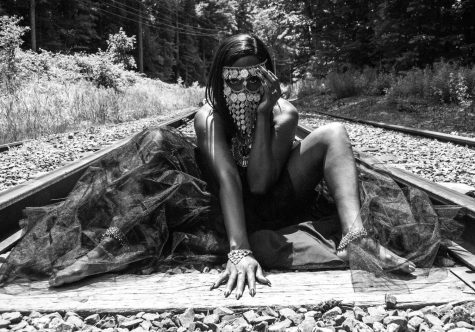

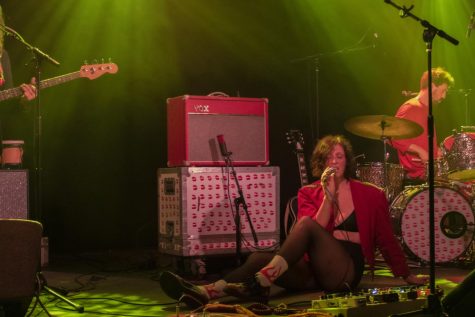

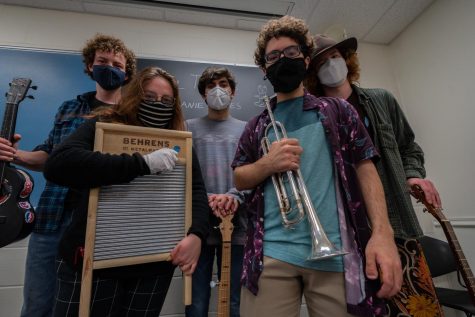

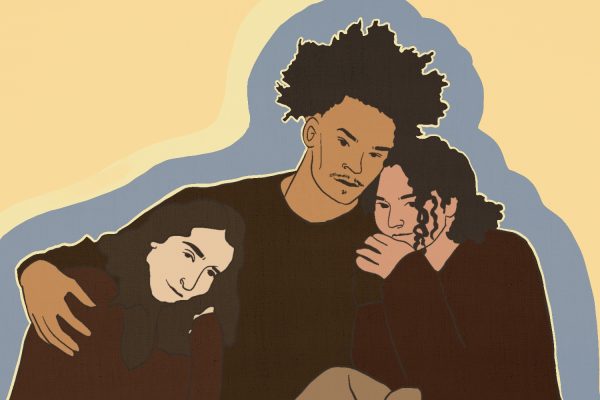
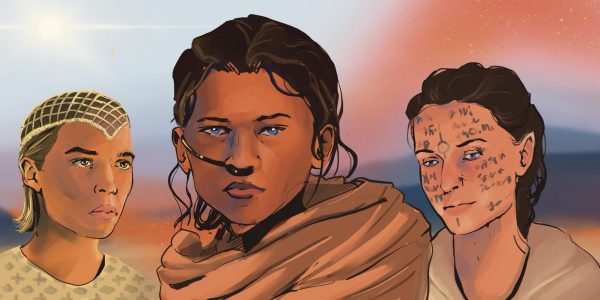
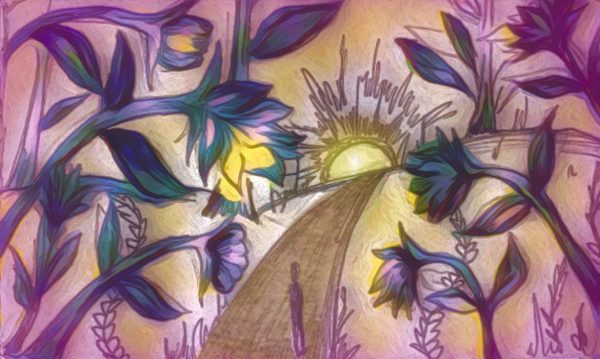
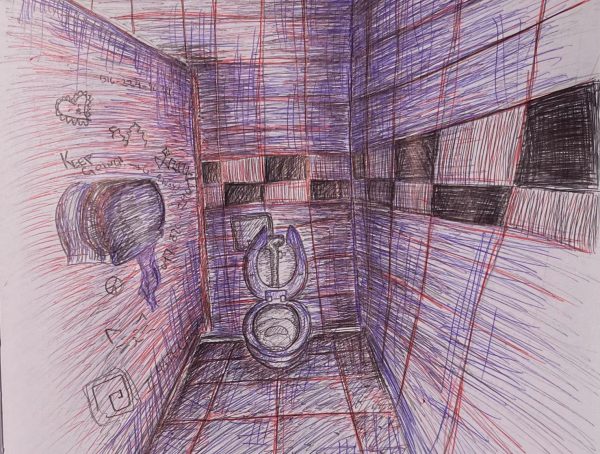
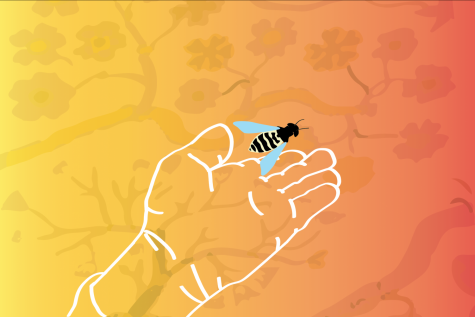
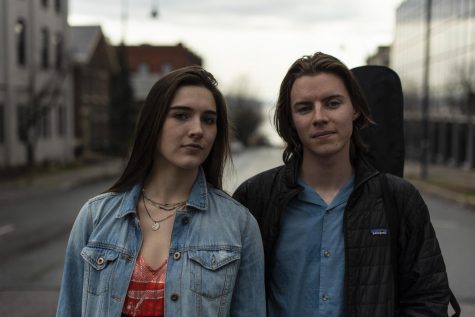
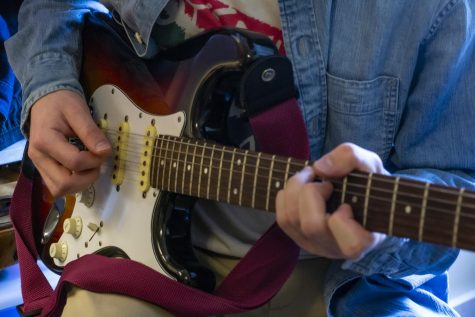
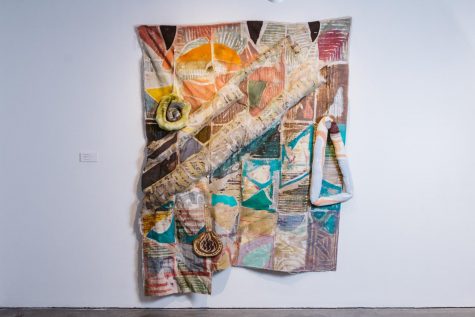
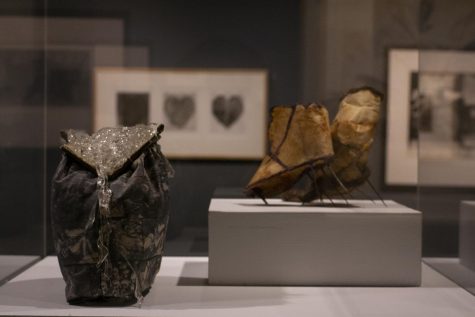
Douglas Lloyd Buchholz • Mar 31, 2017 at 12:23 am
With all due respect, the Abenaki Peoples living within the boundaries of Vermont, were NOT “recognized” whatsoever. The Abenakis were told to shut up and could not testify at Senate Committee Hearings by the State after being invited to testify. But the “recognition” process from the beginning to the end was an affront and an insult to the Abenakis. Confused? You should be because that is what ‘they’ wanted you to be. The Public of Vermont have been greatly deceived by what has been done in the State of Vermont and by these so-called “Abenaki” groups that have now State Recognition as “Tribess”. And yes, we do have proof of the merits of what I have stated herein. For example, the Professor, Mr. Wiseman stated and quite openly implied that the Phillips family MUST BE Abenaki through the Phillips ancestor Antoine Phillips Sr. through the Philips Deed of 1796 here in northern Coos County, NH … and yet research has clearly proven otherwise, just by reading the 1859 and 1873 Burlington Free Newspapers! Therein, in 1859 the articles indicated that Antoine Phillips Sr. was a colored man as were his two sons Peter and Michael Phillips Sr. Apparently Mr. Wiseman didn’t research too much, because if he had, the narrative and “proof”/ “evidence” he and they threw on Sen. Illuzzi and Sen. Miller’s desks as well as Sen. Snelling’s desk would have been detected to be lies! But none of those countless Vermont politicians did a stitch of research or validation of the data shoved in front of them. They didn’t care about the lies and they sure as heck didn’t care about the truth! None of them … not the Professor, not the “Chief’s” of these 501(c)3 groups claiming and implying they were “Abenaki” “tribes” to the State and varied other entities where they sought status, recognition and grants etc. Genetically, the Phillips family, documented in the Eugenics Survey of VT were Black, Born-Out-Of-Slavery ca. 1780’s African descendants, targeted by Henry F. Perkin’s Field Researcher Harriet Abbott, not because they were “Abenakis” let along Indians, but rather, because the Black man Antoine Sr. had married a French Catholic woman from Quebec, Canada in the 1830’s and their children and descendants were in the Burlington Free Press newspaper, and getting themselves incarcerated both at the County and State levels throughout the late 1800’s and early 1900’s. The 4 Alburgh Indians that the Partlow’s claim is their proof to “Abenaki-ness’ was also propped up as “evidence” by both the Professor and his groups of pretenders. A simple trip to the Alburg Town Clerks office to see the official original records would have sufficed, had any politician in Vermont done that. But they didn’t. It is proven that the 4 Alburgh Indians were in fact Bero, Loran, Laughlin, and Squires (NOT Partlow, Vosburgh, Olena, or the other white fella listed by name on that Town Book page). But the descendants, the groups nor the politicians cared much about FACTS or the TRUTH. And on and on and on down the list the reality goes, that proves, that the so-called “researched’ evidence by this Professor afore mentioned, etc and their other “expert’ ‘unbiased’ scholars was NEVER done. Genealogically and genetically these people are not Abenakis whatsoever. So what is this radio show hostess Deb Regers, host of Moccasin Tracks on 90.1 WRUV, really doing, but helping to perpetuated to the naive masses of the Vermont public, that she is documenting the “Abenaki” pretender people are re-inventing themselves and puppeting their so-called “traditions” with each other and with their larger communities. If they are becoming larger “groups’ of pretenders, it very likely because the groups themselves, are allowing anyone and everyone with 1 drop of … or one ancestor in the 1600’s to come into the group and become members. I mean if my 9th or 11th great grandmother was a documented Huron woman, such as there is in the Phillips family, due to Antoine Phillips Sr.’s french wife Catherine Emery dite Coderre, that still doesn’t make the descendants Abenakis, now does it?! I could go one about Mr. Frederick Matthew Wiseman Ph.D. but the naive Vermonter’s like to keep their heads stuck in the Vermont soil, with their arses up in the air apparently about these so called “Abenakis” parading themselves to the naive media.